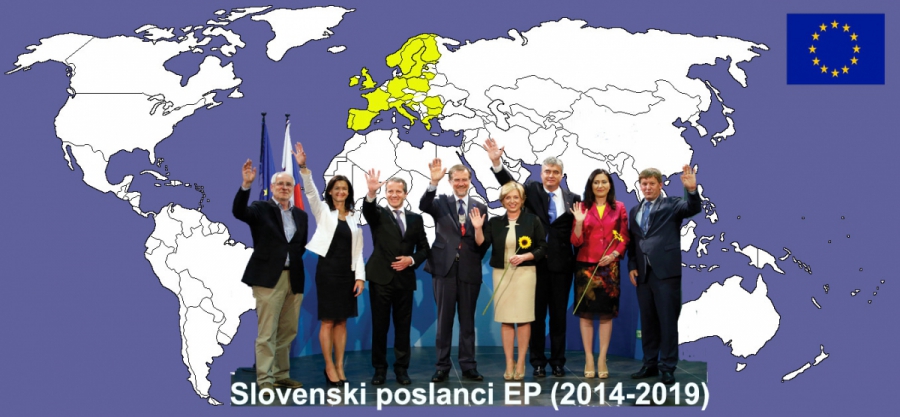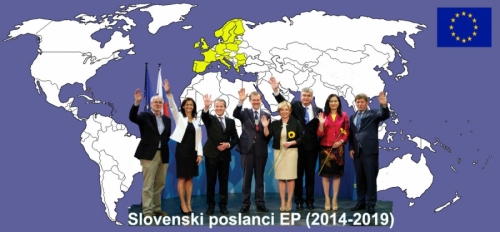

February 15 - Let's finish off CETA
Next Wednesday, 15 February, Members of the European Parliament will cast their vote on CETA, the EU-Canada trade deal.
Mobilisation - CETA Vote - povezava
Arguments
We have collected a sample of the most problematic issues in CETA. You don’t have to use all of them in a phone call, just pick a few that you are concerned about most.

Democracy
CETA is a post-democratic agreement. It reinforces the particular interests of big industry and weakens democracy. Thus it will further alienate the EU from its citizens.
- The CETA agreement was negotiated in secret. The negotiation objectives of the EU Commission were decided in 2008 by the governments of the EU member states. Even this document was secret, until it was leaked by civil society in 2015.
- Parliaments are permitted only to say Yes or No to CETA. However, they thereby undertake to fully implement the 2270 page agreement document into governing law. The vote on CETA is therefore simultaneously a decision on data protection, pharmaceutical patents, customs duties, the enforcement of seed licenses, and much more. Never before has the European Parliament waved through far-reaching provisions of this type after such a brief and superficial parliamentary process.
- CETA provides special rights to global corporations. Section 8 allows investors from Canada to sue the EU and its member states for damages, and vice-versa, if new regulations reduce their profits and thereby the value of their investments. No domestic business can avail of this. The protection against “indirect expropriation” goes significantly beyond the protection against expropriation under national law. The “right to regulate” specified in section 8 and in the accompanying explanations changes nothing in this respect – claims for compensation will follow nevertheless. 42,000 US companies could also sue via subsidiaries in Canada.
- CETA gives lobbyists precedence over Members of the European Parliament. The rules on regulatory cooperation (sections 25 to 27) are the perfect environment for lobbyists to be able to influence the text of draft EU laws, even before these reach the European Parliament. Participation of the European Parliament, the elected representative body of citizens, is not provided for.
- CETA restricts legislators. In many places, CETA makes very definite provisions which go well beyond classical trade policy. If in future the EU, the member states, or local authorities wish to modify regulations which are defined in CETA, then the federal Government of Canada must agree. In this way, parliaments lose room for maneuver, and citizens lose their ability to change politics through the ballot box.
Food and Farming
Throughout Europe there is great pressure on farms, especially those which operate sustainable agriculture. Increasing numbers are giving up and industry is increasingly devouring agriculture. CETA will destroy small farming and accelerate the industrialisation of agriculture.
- CETA opens the market to cheap meat. CETA increases the duty-free import quotas for pork into the EU by a factor of 11, and for beef by a factor of 15. On average, between 2005 and 2015, the payout price for pork in Canada was 28.4% below that in the EU, and for beef it was 16.2% less. European companies therefore have no chance. In addition, the agreement contains no binding regulations on animal protection. Although everyone in the EU must comply with the same regulations, CETA threatens competition with the application of different standards.
- CETA strengthens the seed industry against the farmers. Many agricultural operations in Europe use their own seed for cereal cultivation. This is a thorn in the side to corporate groups like Monsanto – their aim is to take in license fees every year, but for this they must prove to the farmers that they are providing licensed seeds. Article 20.36 of CETA gives them what the European Court of Law has refused for decades: A reversal of the burden of proof. In future, farmers must prove that their seeds are not licensed – or else they must pay.
CETA brings more genetic engineering to Europe. Canada is amongst the major champions of GMOs worldwide. Article 25.2, paragraph 2 of CETA explicitly names the “reduction of disadvantageous commercial impacts from regulatory practices in the area of biologically engineered products” as an aim of the agreement. This can mean only that the EU will eventually have to open its market for genetically modified
Workers’ Rights
The European form of the social state owes its success to the rights of co-determination which it guarantees to workers. With CETA, their interests are thrown under the bus.
- Increased competition without common regulations. Worldwide, free trade often results in a competition to impose low salaries, long working hours, and low social contributions by employers. In order to avoid this, clear regulations are required against salary, social contribution, and tax dumping. CETA does not contain these regulations. It is true that there is a section about trade and work (section 23), which contains many fine words, but in the event of infringements, only consultations are foreseen, not sanctions.
- Companies use arbitration tribunals in order to proceed against social rights. Special rights for investors, such as the ICS in CETA, strengthen the abilities of large companies to force through their interests. For example, the French company Veolia is currently suing the Egyptian state for compensation for the introduction of a minimum wage. Winning better regulations for employees therefore becomes ever more difficult.
- CETA is destroying jobs. Economic predictions assume a slight growth of employment, less than 0.02% at best, over the course of 10 years. Less positive studies talk of a loss of more than 200,000 jobs in the EU. It will not be possible for someone who makes sausages today just to swap over to the export of building services tomorrow. Predictions therefore foresee an increase in long term unemployment.
- Redistribution from bottom to top. CETA makes it easy to change the functional distribution of income in the EU. Economic predictions forecast that the relative share of the equity owners increases by 0.66%. The working population’s share in the wealth which is produced decreases correspondingly.
Environmental and Consumer Protection
As consumers, we want to be sure that products we buy are safe. We don’t want to be the guinea pigs of the industry. We also don’t want our environment to be polluted. That’s why we have the precautionary principle in Europe. However, the industry only sees this as restriction. With CETA, they started an assault on the precautionary principle and on our rights as consumers.
- CETA obstructs food labeling. Genetically engineered food must be labeled in the EU. Still we do not yet know whether meat, milk and eggs were produced with genetically modified feed. The genetic engineering industry can use investment protection to demand compensation if labeling requirements continue for certain products.
- CETA obstructs environmental protection. The Canadian industry has a great interest in extracting oil from tar sands. This is, however, the most dirty method of oil extraction and it poses a major threat to the climate. During the negotiations on CETA, the EU Commission weakened the Fuel Quality Directive (originally designed to protect the climate) in order to meet the Canadian tar sands industry.
- CETA obstructs consumer protection. For years, the EU has been discussing the precautionary principle, a restriction on chemicals that act as hormones in the human body. In order to proceed with these free trade agreements, the EU Commission offered to ignore the precautionary principle when doing business with Canada and the US.
- CETA guarantees Canadian mining companies their dirty business. Half of all mining companies in the world come from Canada. They are among the major beneficiaries of investment protection agreements. For example, the Canadian mining company Gabriel Resources is currently suing Romania for not granting permission to mine gold in Rosia Montana. The company would have stored highly toxic cyanide behind a dam, risking the entire lower Danube region, just as we witnessed in the notorious environmental disaster of Baia Mare in 2000. With CETA, companies like Gabriel Resources receive special rights at the expense of people and the environment in all EU countries.
Public Services
European local authorities which have privatised parts of their public services in the last three decades have mainly had bad experiences. Increasingly they are reversing this step, where possible. However most European governments, as well as the EU Commission, remain true to the dogma that private, profit-oriented companies are basically better. CETA restricts the room for manoeuvre of local authorities, and supports the privatisation of public services.
- The investment protection chapter also applies to local authorities. When asked by the European Parliament, the EU Commission itself had to admit that there can be cases in which local authorities are brought before investment arbitration tribunals. There are shocking examples of this from the North American Free Trade Zone, NAFTA. For example, the Mexican local authority of Guadalcázar was ordered to pay 16.7 million dollars compensation because, in order to protect groundwater, it did not approve a hazardous waste landfill site.
- CETA extends and reinforces competitive tendering obligations. For public tenders, CETA opens the market to Canadian companies. Through specifying the thresholds for international tenders in the attachments to section 19, it becomes more difficult to lower them again, because compensation would have to be paid to Canada for this. For public tenders, CETA obliges local authorities to always select the cheapest offer, and forbids quality requirements and conditions which favour local developments.
- CETA liberalises all services not excluded explicitely. While other trade agreements include only specifically named economic sectors (“positive list”), CETA subjects everything to its regulations which is not specifically excluded (“negative list”). In addition, services which do not yet exist are automatically included in the agreement, and these must not be provided by public authorities.
- CETA prevents the reversal of privatisations. Article 8.4 (1) explicitly prohibits the local level from restricting the number of companies which exercise an economic activity with “monopolies, with suppliers having exclusive rights, or the requirement for an economic needs test”. This means that privatisation, e.g. by previous governments, can no longer be reversed, even if this is the wish of the affected citizens.
Now it is time to get loud!
Your Stop TTIP team,
Dániel Fehér, Stephanie Roth and Matthew Read
Stop TTIP info@stop-ttip.org prek domene crsend.com
Feb 08, 2017
